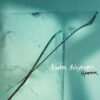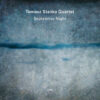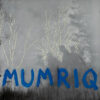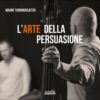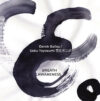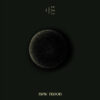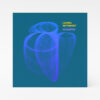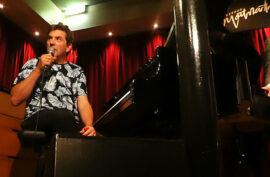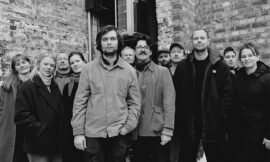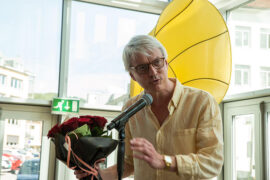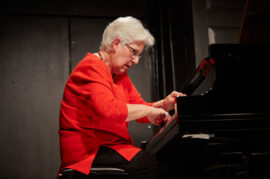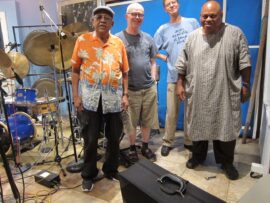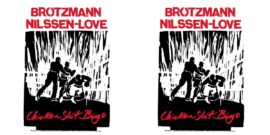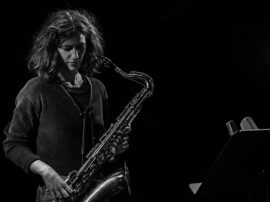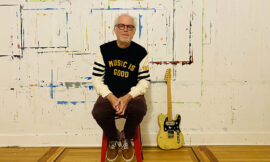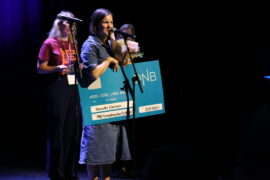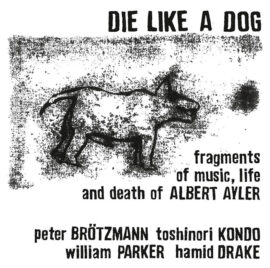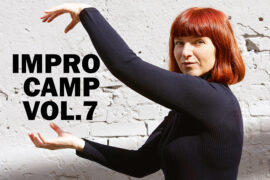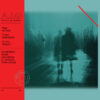
«Sometimes Home Can Grow Stranger Than Space» is a three-movements, elegiac suite dedicated to the individual victims of World War 1 created by three Australian composers for the Australian Art Orchestra (AAO), who recently collaborated with Norwegian guitarist Kim Myhr («Vesper», Hubro, 2020). This suite responds to the intimate accounts of lives remembered in fine-grain detail away from the thrust of battle, as recounted by Australian historian and novelist Bruce Scates. This suite premiered at the London Jazz Festival 2018 edition, and later at Wangaratta Festival of Jazz and Blues (north-east of Melbourne) for the centenary of Armistice Day, and now presented in a studio recording.
The first movement of this suite is the two-parts «Sharp Folds», written by the artistic director of AAO, trumpeter and electronics player Peter Knight. This composition imagines the grief of Garry and Berta Roberts who never recovered from the loss of their son, Frank. Knight mentions that such stories «are not the stories of heroism in the face of impossible odds, mateship, and noble causes that drive the nation-building myths that perpetuate war. These stories are the reality of war». Knight wrote a poem that responds to the paralyzing tragedy of the Roberts family, delivered by the angelic voice of Georgie Darvidis, reciting free-associative words and concluding the first part with repetition of the phrase «Fly Child …», together with the lyrical trumpet playing of Knight, both contrasted by the unsettling but reserved electroacoustic, chamber soundscape of AAO.
The second movement of this suite is the three-parts «I Was Only A Child», composed by electronics player Tilman Robinson. This composition remembers those that entered the war (and often exited this mortal plane) as children and asks why did Australian boys feel compelled to fight and die for the ideals of their elders. The piece contains a sample of an unknown school student conducting an interview with an unknown WW1 veteran and manipulates the veteran answer into a repetitive rhythmical pattern that slowly loses its original meaning. The meaning of the spoken is lost as clarity dissolves. The urgent, angular mix of the repetitive words and AAO abstraction of its rhythmic essence distance this impressive composition from the original, innocent words of the veteran, and at times brings to mind the minimalist works of Meredith Monk. The cyclical patterns and its disquieting coda warn us that calamity verges on repeating, and all of us have learned nothing from the tragedy of such broken children.
The last movement is the three-parts, «Bent Heart», composed by pianist Andrea Keller. This composition reflects four stories of women whose lives were inexorably impacted by WW1, either through their service, or the service of those they loved. The first story, «Lonely Vigil», is dedicated to Olive Pink, an advocate for the environment and the rights of Aboriginal people, who lost her love in the Great War and never re-partnered. The second story, «Treasured Angels», is dedicated to Mary Chomley, who established the Red Cross Prisoners of War Department, but the credit for the POW department was given to a man. The third story, «Broken Doll», is dedicated to Margaret Broadhurst, who was abandoned by her fiancé who fell in love with a British nurse during his time wounded in the war who had left her «a broken doll», and Rachel Pratt, a nurse, the first Australian woman to receive the Military Medal, who wrote hundreds of letters home assuring grieving mothers that the sons they loved had not died alone, had not died in pain, and had died bravely. The fourth story, «Cry Heart But Never Break» is an epilogue, a prayer for all, using text from the children’s book by the same title by Danish writer Glenn Ringtved. This is the most intriguing composition here, radiating the chaotic atmosphere of any war and the endless, heartbreaking grief and its resonating ripples throughout generations. With its short, haiku-like texts, but ends with a ray of optimism: «Cry heart, but never break. Let your tears of grief and sadness help begin new life».
Magnificient work, delivered beautifully by the AAO.
Eyal Hareuveni
Peter Knight (tp, elec), Andrea Keller (p), Tilman Robinson (elec), Georgie Darvidis (v), Lizzy Welsh (vio), Aviva Endean (bcl), James Macaulay (tb), Jacques Emery (b), Simon Barker (dr)
Sometimes Home Can Grow Stranger Than Space 3 min promo from Australian Art Orchestra on Vimeo.

